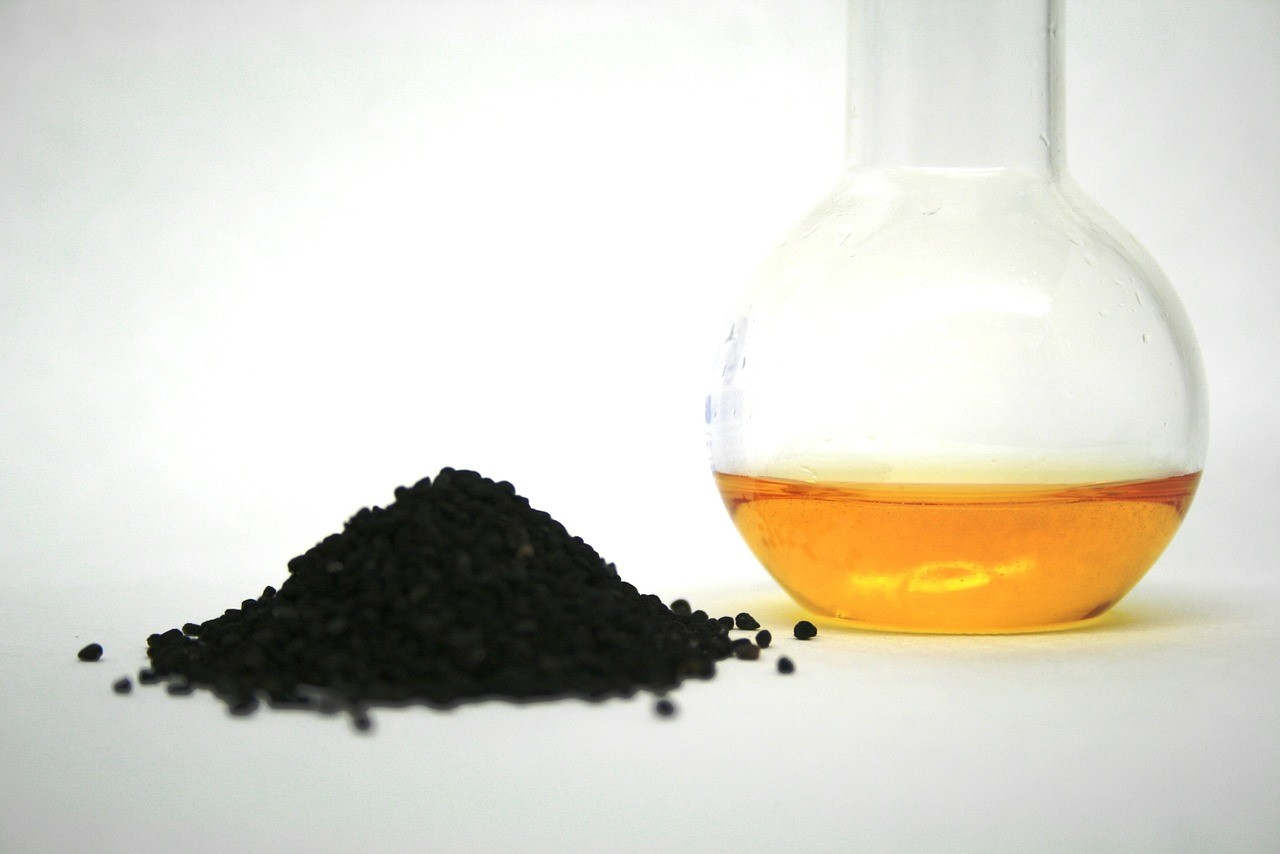The association of traditional medicine and scientific medicine sometimes gives exceptional results as explained here by Dr Jean-Michel Wendling, occupational health specialist, member of the Scientific Council and citizen of the city of Strasbourg and scientific consultant for Frenchdailynews.com.

By Jean-Michel Wendling
“When traditional Ayurvedic medicine meets Evidence Based Medicine, with both a multi-center clinical trial (involving several hospitals) and a randomized double-blind protocol (supposedly active drug versus placebo without either the caregiver or the patient knowing who is taking what), there is a way to reconcile everyone and be very optimistic for this holiday season! »
While vitamin D appears to be essential for arming the most vulnerable patients via the renin-angiotensin system (RAS) (our IDJ article), clinical trials are multiplying and low-cost drug candidates are emerging with incredible results. This seems to be the case for a naturally occurring combination studied by Pakistani clinical teams.
Thus, these clinicians have embarked on an unusual initiative by proposing a treatment with honey and a plant, Nigella or Nigella Sativa. The mixture is presented under the name HNS (Honey – Nigella Sativa).
An antiseptic
The cultivated nigella (Nigella Sativa L. 1753) or black cumin is a plant of the family Renonculaceae native to southwest Asia. The seeds are used as a traditional remedy (in Ayurvedic medicine under the name of upakunchikaa) or as a spice in many countries of the world, particularly in the Muslim world. It is cultivated for its aromatic seeds in the Mediterranean regions, particularly in Turkey and Syria, in Western Asia as far as Pakistan and India, through Saudi Arabia, Sudan and Ethiopia. An oil obtained by first cold pressing has been widely used for centuries in external applications as an antiseptic.
The study is a world first with incredible results: 82% reduction in mortality.
This study is part of the “gold standard of evidence-based medicine (EBM)” and involves a multi-center randomized trial conducted in four medical care facilities in Pakistan (Shaikh Zayed Post-Graduate Medical Complex, Institute of Medical Science Services, Doctor’s Lounge and Ali Clinic; all located in Lahore). The trial was approved by the Institutional Review Boards of the Shaikh Zayed Postgraduate Medical Complex and the Institute of Medical Science Services and supervised by an independent Trial Steering Committee. The trial was conducted in accordance with the International Conference on Harmonization principles of Good Clinical Practice.
Impressive results
Three hundred and thirteen patients – 210 moderate and 103 severe – were included in a randomized study from April 30 to July 29, 2020. Of these, 107 benefited from treatment with Nigella Sativa while 103 received placebo for moderate cases. For severe cases, 50 received HNS and 53 received placebos (1).
The results are impressive to say the least, with a 50% reduction in the duration of symptoms 4 days (treated) versus 7 days (placebo) for subjects with moderate VIDOC and a reduction to 6 days (treated) versus 13 days (placebo) for severe cases. HNS also reduced the duration of virus presence by 4 days in moderate (6 vs. 10 days) and severe (8.5 vs. 12 days) cases. HNS improved the clinical score at day 6 with a return to normal activity in 63.6% versus 10.9% among moderate cases and hospital discharge in 50% of cases versus 2.8% in severe cases.
Finally, in severe cases, the mortality rate was four times lower in the HNS group than in the placebo group with an 82% reduction in mortality (4% versus 18.87%, OR: 0.18) No adverse events related to HNS were observed. This study is in the hands of peers and needs to be validated before final publication.
The Swiss Army Knife
Unlike other antivirals that target a specific structure or pathway of SARS-CoV-2 infection, HNS could kill/inhibit the virus by targeting multiple viral sites or host-virus interactions via multiple components.
One of the active ingredients in Nigella Sativa is Thymoquinone (TQ). By transiting to infected cells, Thymoquinone can bind to the lipophilic envelope of the SARS-CoV-2 virus due to its hydrophobic nature and thus inhibit it (2). It has demonstrated anti-inflammatory, antioxidant, antitumor and antimicrobial activities. Interestingly, thymoquinone and Nigella sativa extract have been shown to be effective against avian influenza virus (H9N2 AIV) and a mouse cytomegalovirus infection model. Treatment of cells with Nigella sativa extract prior to coronavirus infection decreases virus replication. In addition, analysis of gene expression of transient receptor potential (TRP) proteins showed a reduction in viral loads during extract treatments, which may decrease the survival of coronaviruses inside the cells (3).
The mixture also contains Zinc, which has established antiviral properties against several viruses by inhibiting viral replication and acting as an immunomodulating agent. Zinc supplementation would be an effective preventive treatment for the occurrence of respiratory infections shown in a double-blind controlled trial in children. Several publications (retrospective studies) suggest that zinc deficiency is associated with more severe cases and more mortality. Thirty-eight clinical trials are reportedly underway to test the efficacy of zinc as an anti-COVID19 agent.
Another constituent of HNS is ascorbic acid (vitamin C), a common antioxidant and free radical scavenger with anti-inflammatory properties that reduce mediators such as IL-6 and endothelin-1. It has also proven antimicrobial and immunomodulatory properties and blocks several key components of cytokine storms. To this end, forty-five clinical trials have been identified by the authors to evaluate its therapeutic usefulness as prophylaxis and adjunctive medical treatment against COVID-19 (double-blind controlled trial).
Among the flavonoids contained in the plant, quercetin is of particular interest, which is studied in numerous clinical trials against COVID-19. In addition to the predicted binding of quercetin to the junction of viral-human proteins, it is also known to possess antibacterial properties by disrupting membranes, transport and motility.
Quercetin has also been shown to inhibit pro-inflammatory cytokine responses (by reducing MHC class II antigen presentation and TLR signaling of activated dendritic cells) while stimulating the T-helper 1 and cytotoxic-CD8 pathway for adequate viral clearance. Quercetin is a zinc ionophore and their synergy with vitamin C against SARS-CoV-2 is suggested, thus potentiating each other in a coordinated manner.
Honey reduces symptoms such as coughing
In a meta-analysis study (14 studies) published on August 28, 2020, the authors claim that honey improved the symptoms of upper respiratory tract infections compared to usual care, the frequency and severity of cough. Two studies comparing honey to a placebo showed an improvement in combined symptoms. The authors conclude that it is a widely available and inexpensive alternative (4). Honey could contribute to efforts to slow the spread of antimicrobial resistance, but further high-quality placebo-controlled trials are needed and ongoing.
Honey is mainly composed of sugars with small amounts of amino acids, proteins, enzymes, organic acids, vitamins, minerals, volatiles, and polyphenols. Honey has shown equivalent efficacy in a randomized trial for the treatment of cold sores versus acyclovir.
The antibacterial characteristics of honey were attributed to a high concentration of hydrogen peroxide (H2O2) and low pH with methylglyoxal and the antimicrobial peptide defensin-1 of bees. The presence of H2O2 in honey would irreversibly damage microbial DNA by the generation of hydroxyl radicals. In addition, honey would promote lymphocyte proliferation, stimulate phagocytosis and regulate the production of pro-inflammatory cytokines. Certain constituents (arabinogalactans type II, methylglyoxal and the main protein of royal jelly 1) are believed to cause an immunostimulatory action.
On the other hand, some components (glucose oxidase, gluconic acid, polyphenols) have an anti-inflammatory action via the suppression of the production of certain molecules, such as matrix metalloproteinases and reactive oxygen species.
These results suggest the interest of using the HNS cocktail of compounds that complement each other in the fight against SARS-CoV-2 related pathologies, as a potential candidate to combat COVID-19 worldwide.
Thus, an original work and inexpensive available molecules that deserve attention!
J-M. Wendling declares that he has no link of interest with the labs and product manufacturers mentioned in this article.
(1) Honey and Nigella sativa against COVID-19 in Pakistan (HNS-COVID-PK): A multi-center placebo-controlled randomized clinical trial ;Sohaib Ashraf et al. medRxiv 2020.10.30.20217364; doi: https://doi.org/10.1101/2020.10.30.20217364
(2) Nigella sativa L as a potential phytotherapy for coronavirus disease 2019: A mini review of in silico studies. Koshak DAE, Koshak PEA. Curr Ther Res Clin Exp. 2020;93:100602. doi: 10.1016/j.curtheres.2020.100602. Epub 2020 Aug 25. PMID: 32863400; PMCID: PMC7445151.
(3) Covid‐19 and thymoquinone: Connecting the dots. Ajaz Ahmad Muneeb U. Rehman Parvaiz Ahmad Khalid M. Alkharfy Phytotherapy Research. 26 June 2020 https://onlinelibrary.wiley.com/doi/10.1002/ptr.6793
(4) Effectiveness of honey for symptomatic relief in upper respiratory tract infections: a systematic review and meta-analysis. Abuelgasim H, Albury C, Lee J. BMJ Evid Based Med. 2020 Aug 18: bmjebm-2020-111336. doi: 10.1136/bmjebm-2020-111336. Epub ahead of print. PMID: 32817011.

